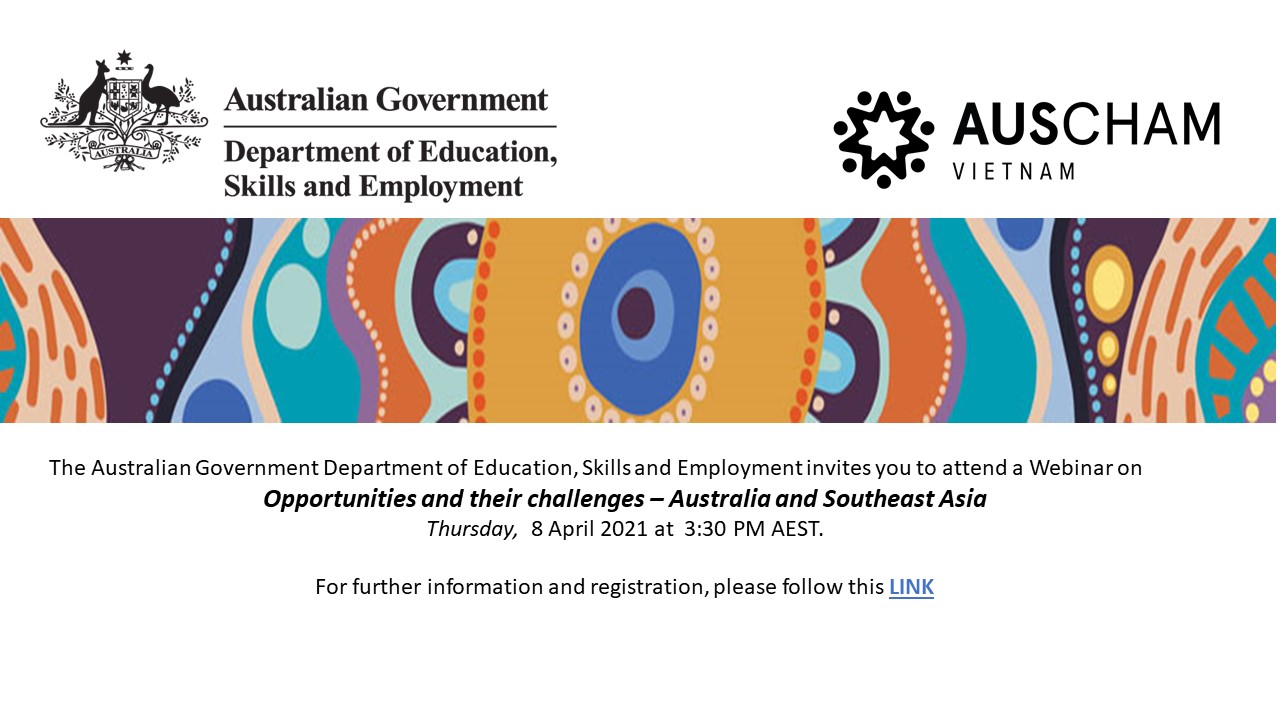International education is a vital part of Australian society. It brings many economic, cultural and social benefits to our people and businesses. It creates links and life-long connections with communities and partners across the world.
Join speakers from the Australian Government to discuss the opportunities for Australia’s international education sector in engaging in Southeast Asia in the decade ahead as Australia develops a new Australian Strategy for International Education.Speakers• Mr Tim Martin, Trade Commissioner for Indonesia and Southeast Asia education lead, Austrade, Jakarta, Indonesia
• Ms Elizabeth Campbell-Dorning, Counsellor (Education and Science), Jakarta, Indonesia
• Ms Fiona Morris, Counsellor (Education and Science), Kuala Lumpur, Malaysia
• Ms Jennifer Bahen, Counsellor (Education and Research), Hanoi, Vietnam*Southeast Asia: a shared opportunity for strengthened partnerships*• The demographic profile of vibrant Southeast Asian countries features its growing size, increasing youth population, burgeoning middle class, and increasing demand for quality education to give students the tools they need to support them with their employment and mobility aspirations in an ever increasingly competitive global environment.
• Not only is Southeast Asia the main source region of Australia’s international students, with several countries from this region featuring in Australia’s top ten source countries, but its regional proximity to Australia, students’ strong desire for an Australian education, and partner governments’ preference of us as an education partner offer unique opportunities and a breadth of potential for Australia to explore.*Discussion questions*• Where do you think the greatest opportunities for over the next 10 years in Southeast Asia lie and why?
• How would you like to see government and the sector work together on Australia – Southeast Asia engagement? Where do you think government efforts are best targeted to support engagement?
• What would an optimal engagement environment look like in 2030, and what are the key three things we should focus on together to ensure we can achieve that?


